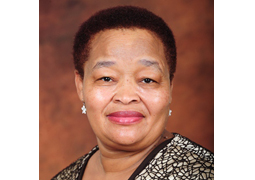
THEME: LOCALISING THE ECONOMIC RECOVERY PLAN FOR ACCELERATED ECONOMIC TRANSFOMATION
Venue: Virtual Platform Date: 17June 2022 Time: 09h00
Chairperson of the National Council of Provinces
Speaker of the National Assembly
Members of Executive Council
Members of Parliament
Leaders of Chapter Nine Institutions
Ladies and Gentlemen
The United Nations Secretary General once said “We have been brought to our knees by a microscopic virus….it has laid bare risks we have ignored for decades: inadequate health system, gaps in social protection, structural inequalities, environmental degradation, including the climate crisis”
Programme Director, the outbreak of the Covid-19 pandemic in March 2020, found a vulnerable South African economy. In fact, at the time the pandemic reached our shores, the South African economy had experienced two consecutive quarters of recession.
For the past decade, the South African economy has experienced stagnation, which has put tremendous strain on efforts to meaningfully address the historical structural inequalities, unemployment and poverty.
Sustained low rates of economic growth, particularly since 2008, have limited the volume of income for redistribution. Inequality has not reduced, ownership of the economy remains highly concentrated and higher economic returns continue to accrue to those already endowed with capital and skill.
Our poor education and training outcomes also weaken and decelerate efforts to meaningfully transform the economy. In all this, an ambitious project to create a developmental state to progress further away from the legacy of the inherited apartheid economy, has been hamstrung by the absence of the necessary coherence, capability and effective coordination across the broader state machinery. As a consequence, short-termism and populism are on the rise.
Our failure to grasp the importance of inclusive economic growth means we have been unable to create jobs, accelerate industrialization, invest in infrastructure and skills development, raise wages and productivity, and embark on ambitious social welfare projects at a pace that is fast enough to meet the needs of a growing population.
In well-run institutions, operations are transparent. Normal operations management keeps leakages, including theft and corruption, to a controllable minimum level.
In the state sector in South Africa, it seems that whole systems, from beginning to end, are open to manipulation and result in substantial leakages that are reflected in overpricing of inputs and supplies, payments for non-existent supplies, poor-quality outputs and sometimes no delivery to citizens at all. We often spend more for less and furthermore, ‘less’ comes with future high maintenance, repairs and even replacement costs.
Distinguished Delegates, there is an overwhelming consensus amongst the majority of stakeholders, that there should be substantial structural change in the economy that would unlock growth and allow for development.
Adversity often also comes with opportunity. South Africa is now on the threshold of an important opportunity to imaginably and with unity of purpose, reshape its economic landscape.
The current conjuncture presents an opportunity to meaningfully reset the South African economy. It is an opportunity to build a new, inclusive economy that benefits all South Africans. This is a moment for a permanent and decisive break with our past of low and declining growth, falling per capita income, low investment, as well as high and deeply entrenched levels of inequality, poverty and unemployment.
By convening this important summit, Parliament seeks to strengthen and accelerate efforts to build an activist developmental state, particularly for purposes of promoting inclusive economic growth.
Through targeted and strategic oversight, Parliament seeks to ensure that that the broader state machinery works cohesively and strategically, to achieve South Africa’s developmental objectives. To this end, the Economic Reconstruction and Recovery Plan provides the platform and roadmap from which to drive inclusive growth and create mass employment.
Beyond this session, the NCOP in particular, as guided by its three coordination mandate, seeks to ensure synergy, cooperation and coordination of all strategic development catalyzing projects, which are both scalable and able to create mass employment.
Honourable Members, there is consensus among social partners that to generate growth and inclusive development, within the context of South African historical trajectory, require an exceptional form of state, a capable state.
Ziya Onis, a Turkish political economist, has argued that developmental state that perform well are those that have clear development plans as well as the proper support of the political elite.
We are here as Parliament through the sectoral agenda, to provide the political support in order to accelerate inclusive economic growth. As members of Parliament, we agree that we need a multipronged approach to bring about a democratic developmental state in South Africa and this is still feasible.
Policies, the sectoral compact, and the creation of a developmental state, require a clear developmental agenda, which is implemented in a targeted and meticulous manner.
Conclusion
Visionary leadership that is capable of mobilizing support across interests and sectors and managing spoilers is required. We call for a recovery process that leaves no one behind, and for a recovery that is smart and leaps forward, instead of only fixing the immediate issues and restoring the status quo.
Thus, the immediate measures have to be complemented with policy solutions that target the medium-term and the long-term impact.
Honourable Members, the Economic Reconstruction and Recovery Plan is aimed at stimulating equitable and inclusive growth. Let this plan not be a pact for the elite, but let its discourse be discussed in all street corners, church gatherings, political rallies, while enabling a festival of ideas to shape the form and content of this blueprint. Above all this, let us place implementation of the economic reconstruction and recovery plan at the centre of our transformation agenda today, as one of the most suitable mechanisms to realize the transformation we seek.
South Africa has never been short of economic policy documents and prioritized plans. It is policy rich but implementation poor. Hopefully we won’t fail to make true of the Economic Reconstruction and Recovery Plan.
Thank you

